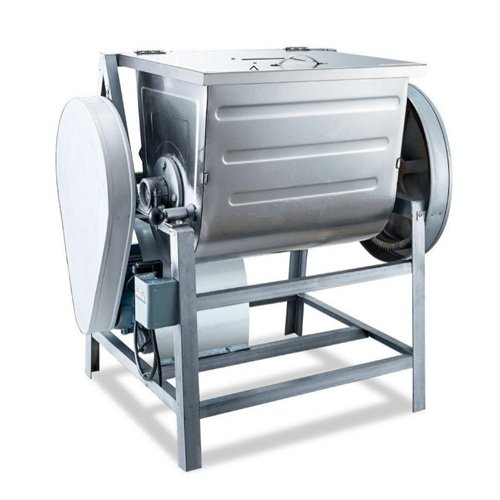
When it comes to commercial baking, efficiency and consistency are key. A horizontal dough mixer is an essential piece of equipment for bakeries, restaurants, and food production facilities that require large volumes of dough prepared to perfection. In this blog post, we will explore the features and benefits of horizontal dough mixers and guide you in selecting the right model for your business.
What is a Horizontal Dough Mixer?
A horizontal dough mixer is designed for heavy-duty mixing tasks, making it ideal for commercial use. Unlike vertical mixers, these machines use a horizontal mixing arm that blends ingredients thoroughly and evenly. This design ensures that the dough achieves the desired texture and elasticity, whether you’re preparing pizza dough, bread dough, or pastry bases.
Models Available to Suit Your Needs
Horizontal dough mixers come in various capacities to cater to businesses of all sizes. The available models include:
- 7.5L Mixer: Perfect for small-scale operations or specialty bakeries that require smaller batches of dough.
- 15L Mixer: A versatile choice for medium-sized businesses looking for a balance between capacity and efficiency.
- 25L Mixer: Ideal for larger bakeries or restaurants with higher production demands.
- 50L Mixer: Designed for industrial-scale operations where high-volume dough preparation is a daily requirement.
Each model offers robust performance, durability, and ease of use, ensuring your dough mixing process remains seamless and reliable.
Key Benefits of Using a Horizontal Dough Mixer
- Improved Dough Quality: Horizontal mixers provide consistent mixing, which helps achieve optimal gluten development and uniform texture.
- Time Efficiency: These machines significantly reduce mixing time compared to manual methods, allowing you to focus on other tasks.
- High Capacity: Whether you need small batches or large quantities, there’s a model suited to your production needs.
- Ease of Operation: Designed with user-friendly controls, these mixers simplify the preparation process for both experienced bakers and newcomers.
How to Choose the Right Model
Selecting the right horizontal dough mixer depends on several factors:
- Production Volume: Assess your daily dough requirements to determine the appropriate capacity. For smaller operations, the 7.5L or 15L models may suffice, while larger businesses might benefit from the 25L or 50L models.
- Space Availability: Consider the space in your kitchen or production area. Larger models may require more room for installation and operation.
- Budget: While all models offer excellent value, it’s important to choose one that aligns with your financial plan without compromising quality.
- Specific Needs: Think about the types of dough you’ll be preparing and ensure the mixer can handle your recipes effectively.
Maintaining Your Horizontal Dough Mixer
To maximize the lifespan and performance of your mixer:
- Clean the machine thoroughly after each use to prevent residue buildup.
- Regularly check moving parts for wear and tear, replacing components as needed.
- Follow manufacturer guidelines for maintenance and servicing.
By taking care of your equipment, you ensure consistent results and avoid costly downtime.
Conclusion
A horizontal dough mixer is an indispensable tool for commercial kitchens and bakeries aiming for efficiency and quality in their operations. With models ranging from 7.5L to 50L, there’s a solution for every business size and need. By investing in the right mixer, you’ll streamline your workflow and elevate the consistency of your baked goods.

